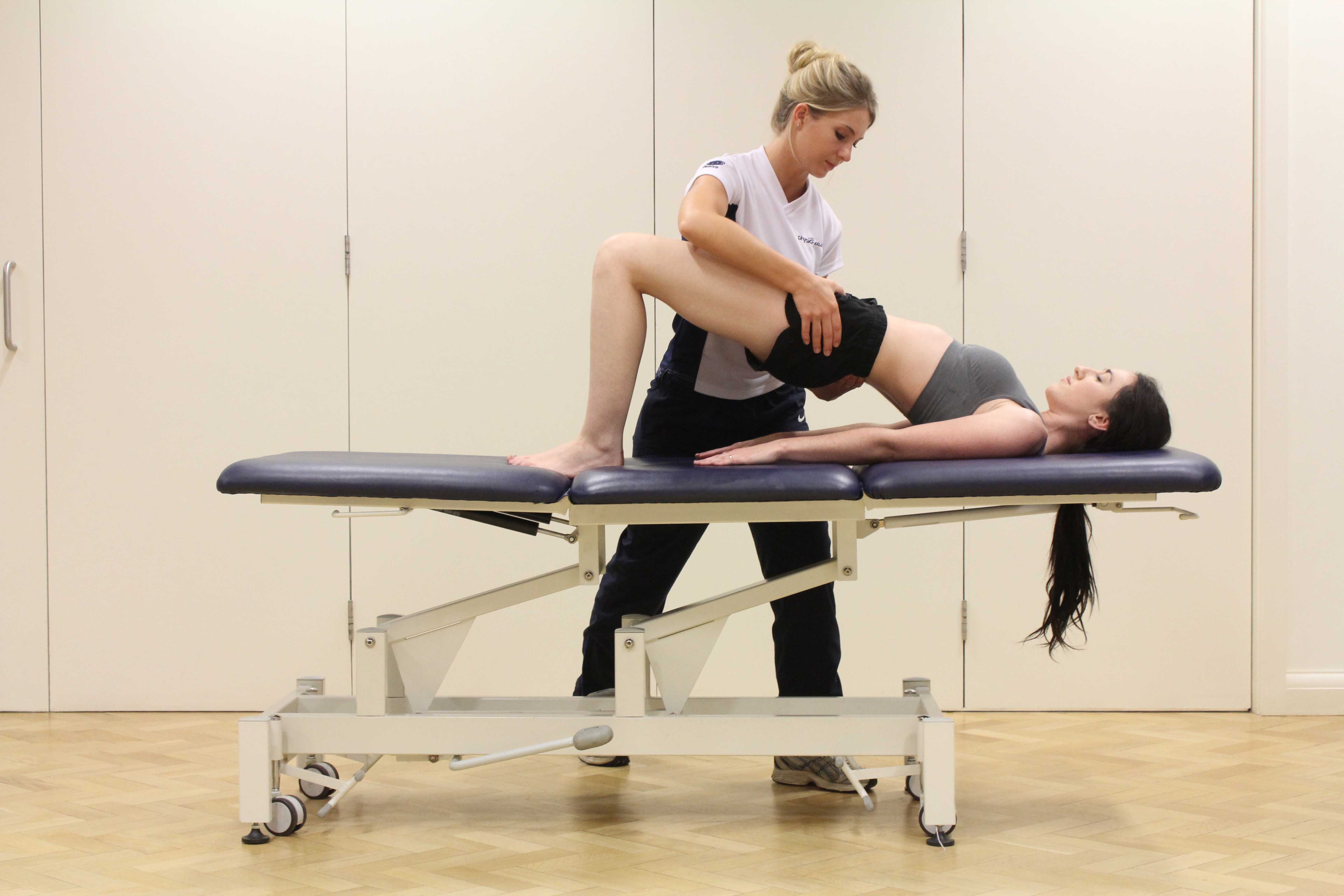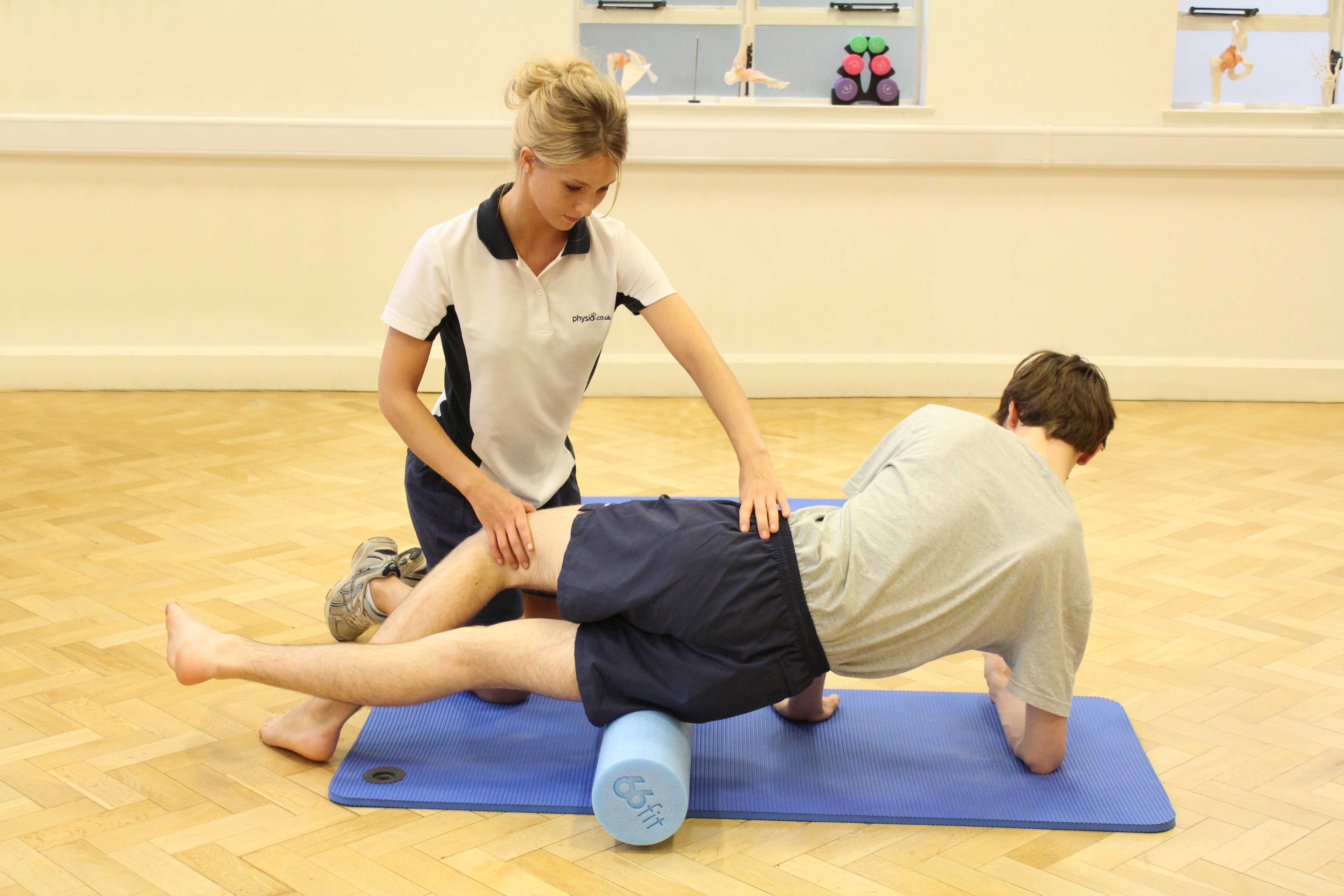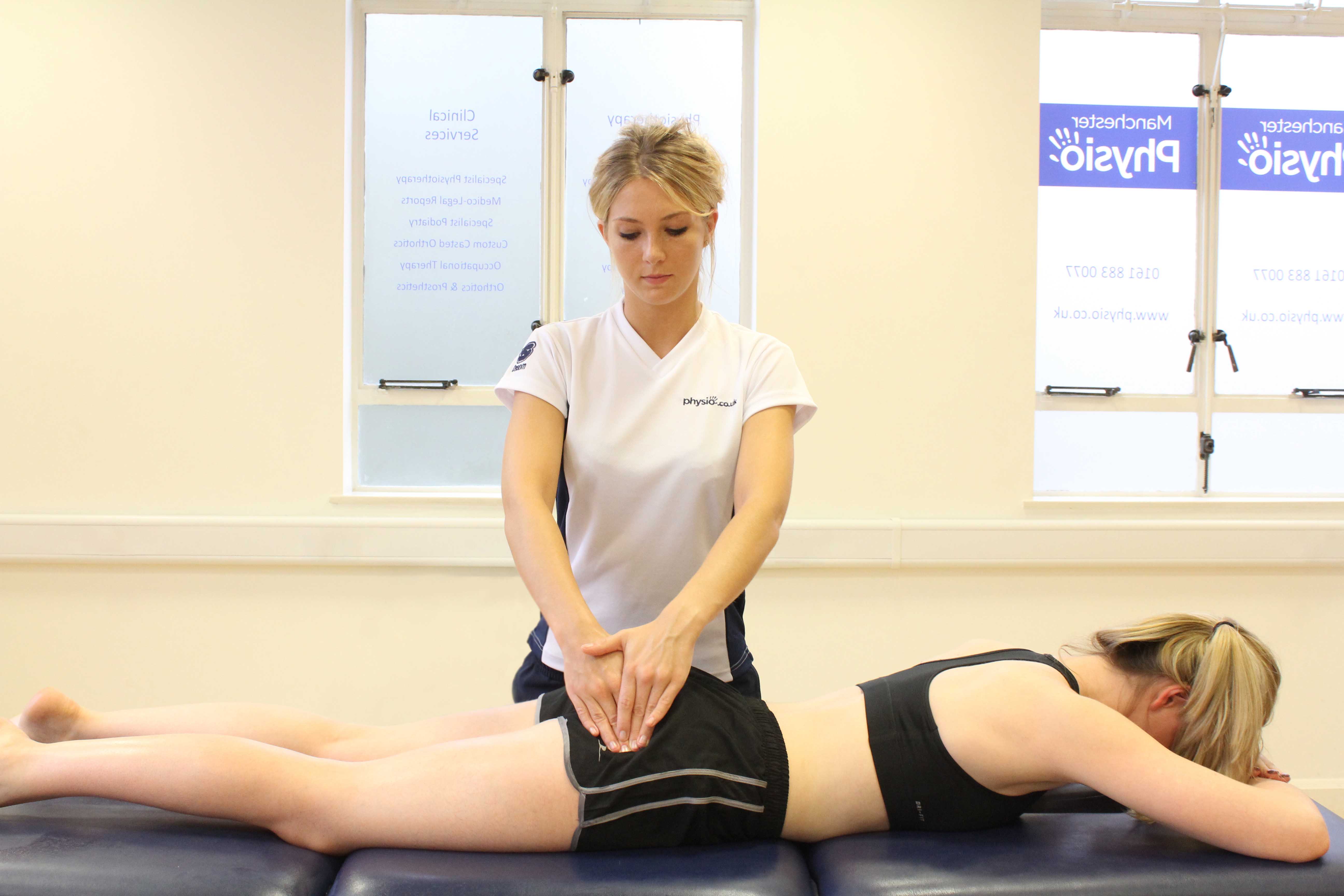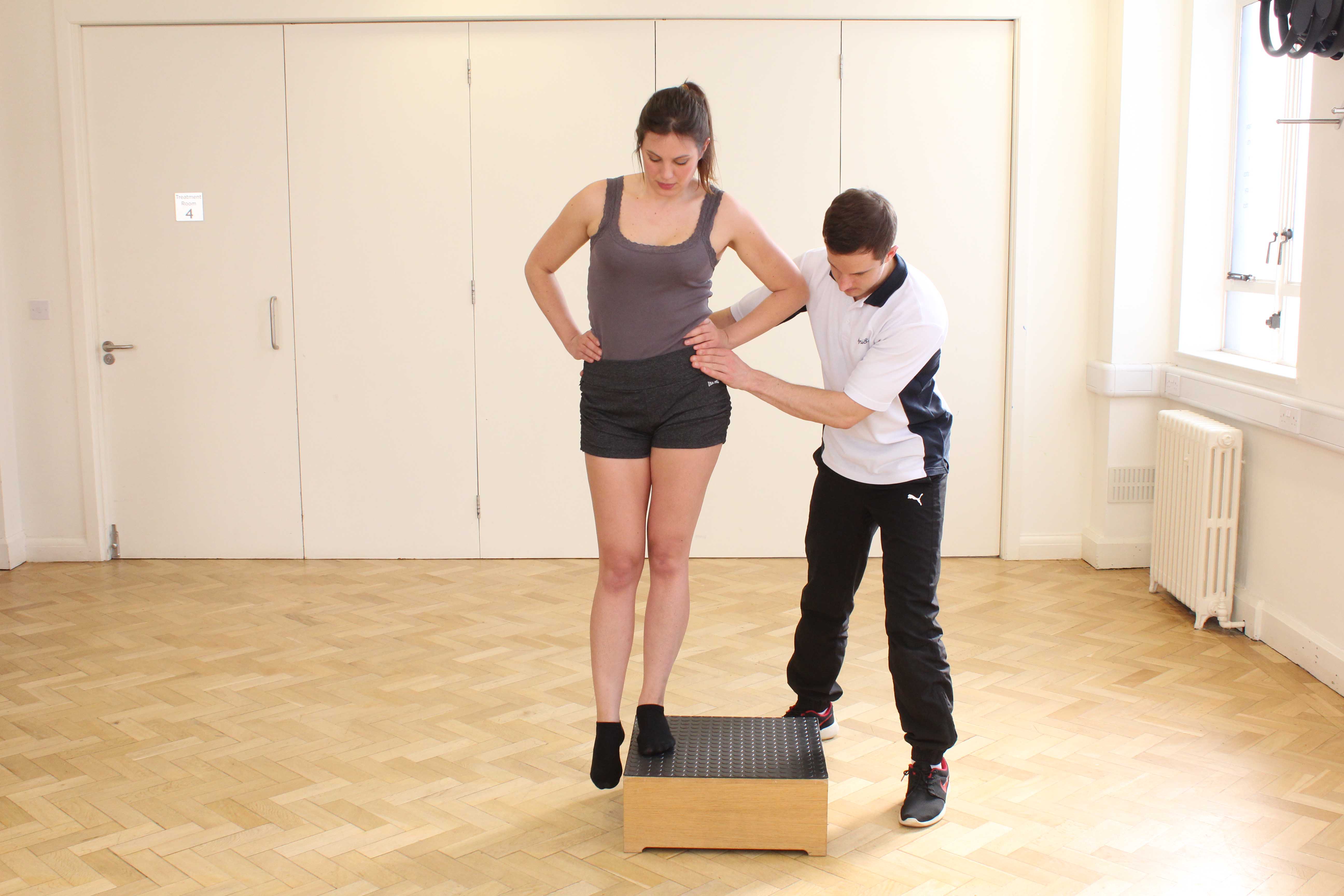What is a prostatectomy?
A prostatectomy is the surgical removal of part or all of the prostate gland. Abnormalities of the prostate, for instance a tumour, or if the gland becomes enlarged for any reason, can restrict the normal flow of urine along the urethra.
 Above: Strengthening exercises for the pelvic muscles supervised by MSK therapist
Above: Strengthening exercises for the pelvic muscles supervised by MSK therapistAre there any complications with a prostatectomy?
Urinary incontinence is a frequent complaint following prostatectomy. Urinary incontinence is a distressing problem and may notably worsen the quality of life in someone who has been effectively treated for prostate cancer.
 Above: Active stretches and mobilisations of the hip and pelvis with supervision from a MSK therapist
Above: Active stretches and mobilisations of the hip and pelvis with supervision from a MSK therapistWhat can physiotherapy do to help?
Physiotherapists can use a number of techniques to help urinary incontinence:
- Pelvic-floor muscle training is aimed at restoring bladder control and reducing incontinence
- Biofeedback can also be used as a teaching tool to ensure correct contraction of pelvic floor muscles
 Above: Soft tissue massage of the muscles and connective tissues around the hip
Above: Soft tissue massage of the muscles and connective tissues around the hipSummary
A prostatectomy is the complete or partial surgical removal of the prostate gland. Urinary incontinence is a regular complaint for patients who have undergone this procedure, which can be very upsetting and significantly affect quality of life. Physiotherapy techniques such as pelvic floor exercises can help improve urinary incontinence.
 Above: Strengthening exercises for the hip and pelvic muscles, supervised by MSK therapist
Above: Strengthening exercises for the hip and pelvic muscles, supervised by MSK therapistFor more information please call 0330 088 7800, or contact us.

 0330 088 7800
0330 088 7800


































